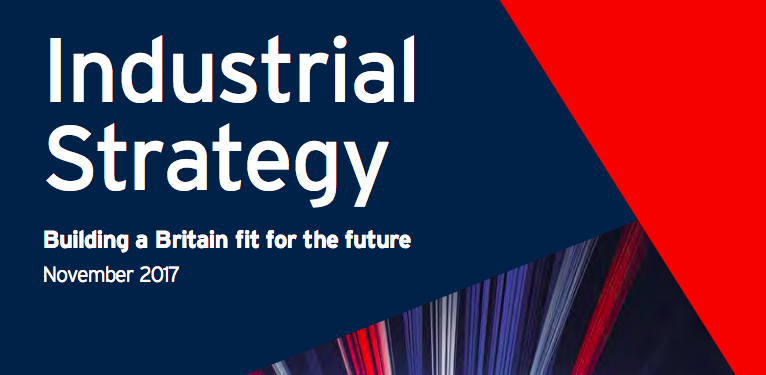The UK government this week released its ‘Industrial Strategy‘, which aims to explain how the UK economy will face the local and global challenges in the coming years. However, despite repeating the adage that the nation has a “world class higher education system”, international education is not immediately at the forefront of the plan – although the country’s research capabilities and collaborations are central to the new agenda.
News and business analysis for Professionals in International Education
Have some pie!
New UK ‘Industrial Strategy’ has STEM focus

The strategy, written by the Department for Business, Energy and Industrial Strategy, and signed off by the prime minister, sets out four “Grand Challenges” for the British economy and then aims to show how the London government will tackle them.
The first of these “Challenges” is AI and the data economy, with a focus on boosting STEM subjects from primary to higher education set out as one of the key tenets of the paper.
“Our vision for a knowledge-led economy is underpinned by world-leading research, world-class facilities and international collaborations that push scientific frontiers and attract the brightest talents, from Nobel Prize winners to ambitious graduate students,” the document reads.
The remaining ‘Challenges’ highlighted in the paper are: “Future of Mobility” pertaining to the movement of services; “Clean Growth”; and “Ageing Society”.
“Boosting funding for research will help ensure our university sector can remain internationally competitive”
This will take the form of a £406 million investment in STEM and “technical education”.
Much of this investment will take place in the primary and secondary compulsory education sector, as the government’s aim is to widen “the pool of students capable of studying advanced maths and other STEM subjects”.
However, Westminster is also investing in higher education STEM projects around the country, such as the New Model in Technology and Engineering (or NMiTE). This new university, which is described as a “radical approach” to STEM HE, will offer two-year degrees and takes its first cohort in 2020.
Though the role of international students is not directly mentioned, NMiTE’s partnership with Olin College of Engineering, in Massachusetts, USA, is an indicator of the cross-border collaboration planned.
The paper does mention changes to the Tier 1 of the UK visa system. This is intended to “enable world-leading scientists and researchers endorsed under the Tier 1 route to apply for settlement after three years”.
In the same passage, the strategy says the changes will aim to “make it quicker for highly-skilled students to apply to work in the UK after finishing their degrees”.
The reaction to this new strategy paper across the UK education sector has been mixed, with several organisations calling it a “good start”, but also calling for continued assistance to ensure the aims are met.
Russell Group head of policy Jessica Cole said “the focus on investing in both people and research is welcome”. She added that a commitment to research funding will be important for the international footprint of UK institutions.
“Boosting funding for quality-related research will also help ensure our university sector can support work in new fields and remain internationally competitive.”
David Hughes, the chief executive of the Association of Colleges, said it was both a “good start”, and a “helpful statement of intent”, but added that “more will need to be done to ensure the different initiatives work well together and to provide the predictability that allows colleges to make their own investments”.
Still looking? Find by category:


